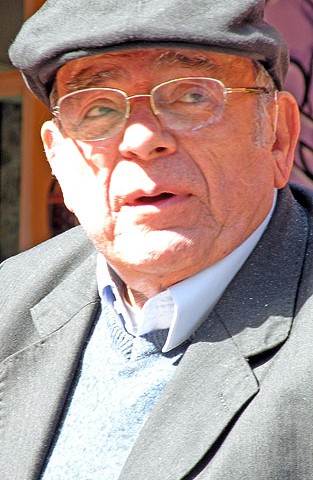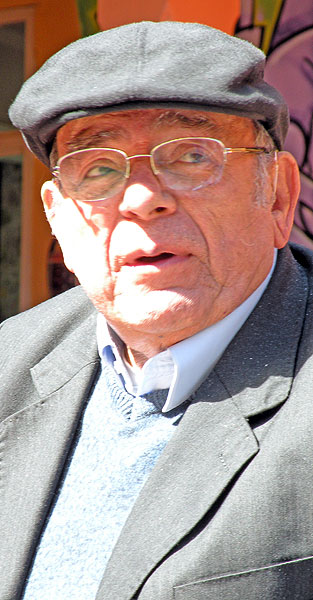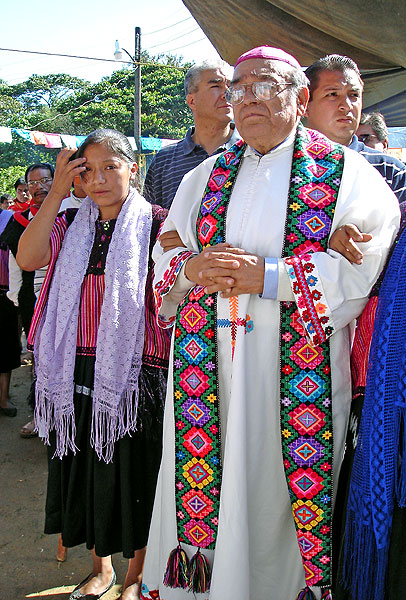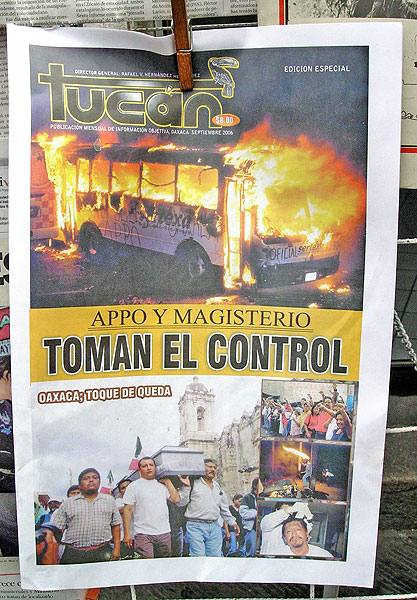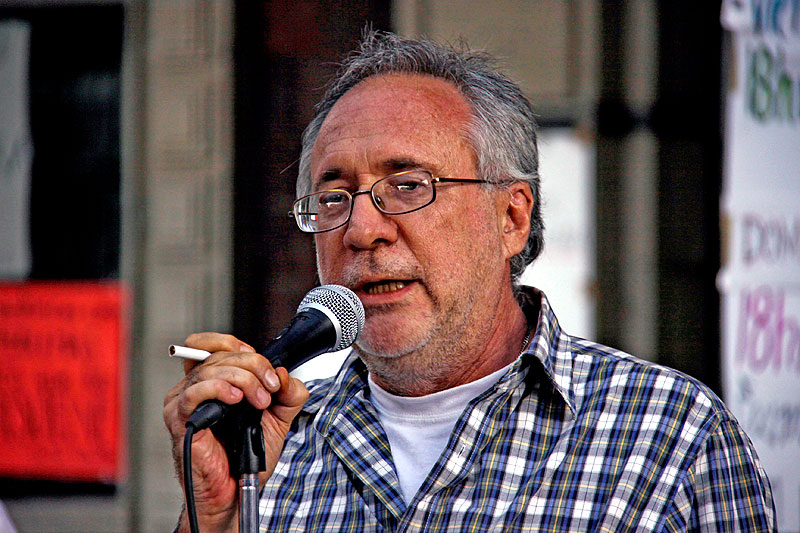Since 26 January the remains of Don Samuel Ruiz Garcia have lain on the altar of the cathedral of San Cristóbal de Las Casas. Thousands of people of all ages, social classes, and skin-color arrived to say farewell to their jtatic or jtotic (“Father” in the tseltal and tsotsil languages, respectively). Don Samuel Ruiz García, bishop emeritus of the diocese of San Cristóbal (which was his title between 1959 and 1999), died on 24 January 2011 in a hospital in Mexico City. His body was taken to San Cristóbal in the morning of 25 January, the same day that would mark the fifty-first anniversary of his episcopal ordination.
A key figure in the liberation theologies that favor a preferential option for the poor, Ruiz García played an important role in the awareness raising and consolidation of organizational processes among the indigenous peoples of Chiapas, particularly after the Indigenous Congress of 1974. Samuel Ruiz García also served as a mediator in several Latin American conflicts, especially in the conflict in Chiapas between the Zapatista Army of National Liberation (EZLN) and the federal government, as well as in 2008, when he joined a number of other Mexican intellectuals in mediating the conflict between the Popular Revolutionary Army (EPR) and the government of Felipe Calderón.
During a visit to indigenous communities following Ruiz García’s death, SIPAZ received many testimonials from people who were moved by the death of Don Samuel, known by many as “The Wanderer” for innumerable times he visited parts of his diocese. For example, Ruiz García “came here and was with us here in this community several times. I met him, and as he is a strong defender of the poor and others, he spent 3 or 4 days with us here. He never was afraid; he confronted the problem together with the poor… He suffered with us and was even threatened by the government, as we have been, just for defending our rights… He supported many communities, but not just communities: also Mexico. He made no distinctions; Don Samuel Ruiz treated everyone equally” (testimony of Sebastián in Jolnixtié, in the zone below Tila).
During the burial of Don Samuel, the civil society Las Abejas also presented a eulogy that was surely reflected by many other voices, in the sense of recovering all that he sowed: “Jtotik Samuel, you go, but you remain in our hearts. You go, but the fruit of your labor continues here, where it will bear more fruit still. The organization Las Abejas is an example of the fruits of your work. Thanks to you Jtotik Samuel, we no longer walk hunched-over. We no longer bow our head to ‘the powerful,’ thanks to you.”
Beyond Chiapas, Ruiz García was known and recognized the world over, even by many different religious denominations, as a representative of a simple, participatory, autotchthonous, fraternal, and human-serving church in the broadest possible sense—a testimony of hope for the darkness in which we can sense ourselves as being presently caught. From several different parts of the country and the world, arrived condolences and celebration of Ruiz García’s contributions as regards human rights, peace, and inter-religious dialogue within the local, national, and international context.
Many have spoken of their own conversions upon arriving to Chiapas and discovering the situation of marginalization in which the indigenous of the state find themselves. Through the strength of his testimony during the several times in which he traversed the world, Ruiz García helped others open their eyes not only to the realities faced by the indigenous peoples of Chiapas, Mexico, and Latin America, but also to that of the oppressed and excluded in countries considered wealthier. His path induced many others to follow in the footsteps of his revelations.
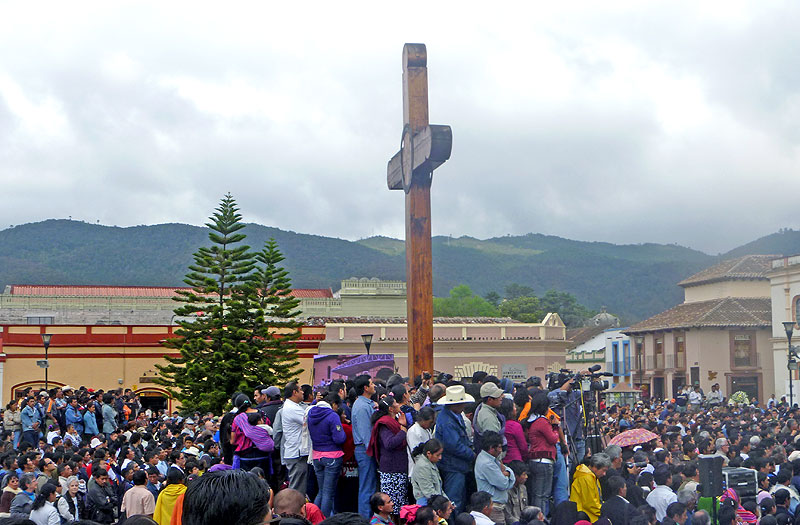
Using his own faith, position, and charisma, Ruiz García transcended merely being an ecumenical and inter-religious figure. In this sense, SIPAZ shared several spaces with him: activities in the Peace Council, Ecumenical Meetings held in Chiapas in 1997 and 1998, Inter-Religious Meeting for Peace carried out in Chiapas in 1999, and creation of the Biblical School (which has now become the Institute for Intercultural Studies), among others.
In November 1999, for Monseñor Ruiz’s seventy-fifth birthday (the age at which Catholic bishops are required to retire), SIPAZ promoted an initiative that permitted that close to 300 religious leaders from 26 countries come together to release a pronouncement for his “40 years of prophetic and pastoral ministry.”
The pronouncement, entitled “Choosing life,” was supported by a number of different Christian denominations as well as by leaders of the Jewish, Muslim, and Buddhist religions. The document reads: “God has blessed us, raising up among us leaders profoundly rooted in their peoples who take advantage of these critical times to convert the darkness to light, fear into courage, and desperation into hope. For us Samuel Ruiz has been one such leader […]. We feel grateful and humble for the vision of the liberation of the people of Chiapas that [Ruiz García] has prophetically proclaimed. It has made us look at our own lives in a different way […]. Always guiding from inside his people, he has articulated a perspective that resonates as one of the most profound truths we know: that the God of Life calls us to justice, compassion, and humility, and that only choosing life shall we know true liberation and joy.”
This expression of international, ecumenical, and inter-religious support toward the bishop of a place as remote as Chiapas demonstrates how it is that Don Samuel converted himself into a symbol of hope for many. As SIPAZ, we would emphasize 5 elements of his work that continue to inspire us.
-
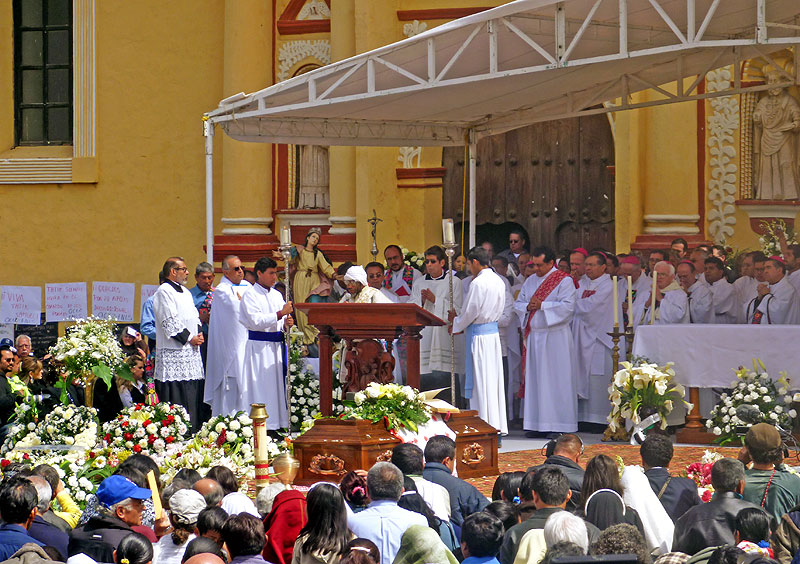 Funeral of Don Samuel Ruiz García, Plaza de la Paz, San Cristóbal de Las Casas, January 26th, 2011 © SIPAZ
Funeral of Don Samuel Ruiz García, Plaza de la Paz, San Cristóbal de Las Casas, January 26th, 2011 © SIPAZA call to humility, commitment, and personal change: Don Samuel showed us that true spirituality should include both the internal as well as the external. He demonstrated to us using nothing more than words and his own form of humble being not only to look to the sky but also below and internally. In a homily presented in January 1994, Don Samuel said that “[p]ersonal change and a profound reformation of the structure of society are urgent, because one cannot be had without the other.”
- Patience and capacity to listen to others, giving their words weight independently of their age, gender, social position, or religious affiliation. These are perhaps things Ruiz García learned from the indigenous communities where spaces are made-available for each to share their words and thus make accords. Don Samuel learned and spoke many languages, both Western and indigenous. He knew to recognize in each and every one a unique being, a subject more than an object—something he greatly stressed when speaking of the indigenous peoples. He sought the participation of all, men and women, religious and secular.
- Active non-violence: In his pastoral letter “A new hour of grace” (2004), Ruiz García claimed that “To struggle for peace means not only to oppose war or take simplya pacifist position but to adopt an integral position that, through questioning the neo-liberal capitalist system, challenges us also in the justification of violence, as though this were the only path for confronting injustice. Upon reflecting seriously on the position of Christ, who proclaimed his new commandment to love as he loved us and also to love our enemies, one concludes that active non-violence is the real alternative to construct a society in which all fit, without having to sacrifice anyone to conserve peace and order.”
- Not to have fear: Don Samuel maintained his strength amidst criticisms and aggressions (including physical) against his person and the diocese. He shows us that despite everything we should not have fear but rather confront the consequences of the options that we should assume as Christians vis-à-vis the violent reality that surrounds us. In “A new hour of grace,” Don Samuel writes that “Jesus calls on us to be defenders even if in so doing we must follow his path: that of the Cross. The question with which God will present us at the end of our existence will be: On which side were we on? Whom did we defend? For whom did we choose? These are questions that no one, including the powerful, can evade at life’s end.”
- To maintain hope alive despite negation: The reading of the “signs of the times” can many times drive us to despair, disillusionment, or passivity. What we admire always in Don Samuel was his capacity to continue seeing signs of light in the midst of such darkness. In an interview with Jorge Santiago in 1996, Ruiz García affirmed that “I believe that men of faith, thus understood, who allow themselves to be illuminated, who are disposed to walk and give birth, although there be not clarity in this moment, but knowing that the light exists, will perceive it and look to the panorama, for the light offers not only tranquility but also strong hope for the future.” In his aforementioned pastoral letter, Don Samuel says that “With hope the globalizing strength of the excluded can be seen—of those who do not accept that this system be the definitive one but who rather vehemently express that other system, in which justice and truth are resplendent, is urgent and possible.”
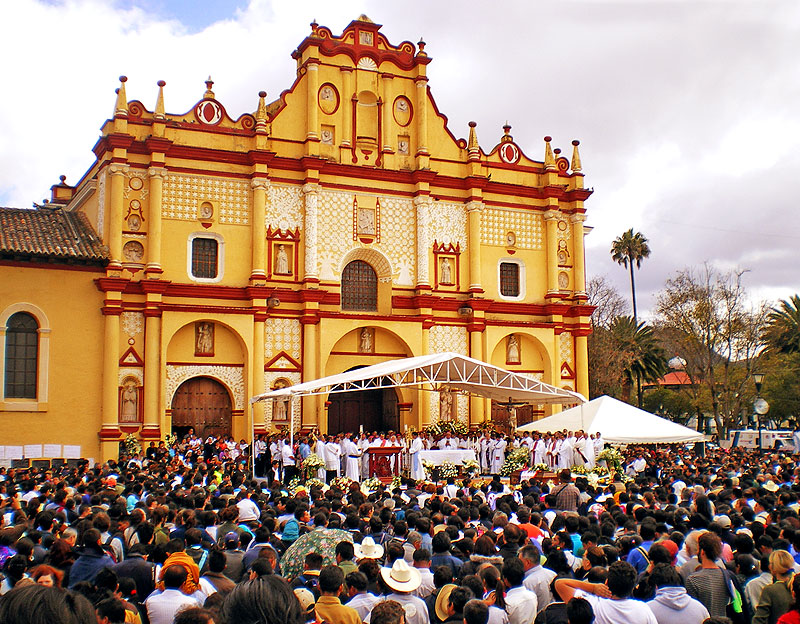
Pablo Romo (collaborator of Don Samuel in several different spaces and current member of Services and Assessment for Peace [SERAPAZ]) remarked to us once some years ago regarding the motto of France: “Liberty, equality, fraternity.” He said that the countries of the West had contributed much to humanity as regards “liberty,” that the countries of the East had contributed much to the sense of “equality,” and that those of the South are the ones that call on us to rethink ourselves as human beings who are fraternal and indeed the only means by which to save humanity from itself. In the pastoral letter “A new hour of grace,” Don Samuel writes that “the poor and the Indian peoples are a clear exponent for the taking of consciousness of an ethnic and cultural identity that is opposed to homogenization and that brings us toward actual globalization: they are the actors who are effectively present in the transformation of several countries on the continent; they are injecting a dose of ‘communal value’ to a system infected by a corrupting individualism; they uphold the banner of human dignity and individual and collective rights denied by the neo-liberal system; they are the trunk that conserves the hope for a construction of an alternative society, founded in the recognition of and respect for difference, and they are ‘the rest’ that contains a vision that sees diversity as a seminal part of the new riches and potentialities of human development.”
For SIPAZ, Don Samuel and the indigenous peoples of Chiapas have been faces of hopes that have permitted us to recognize that it is not only urgent but also possible to build a truly fraternal world.

